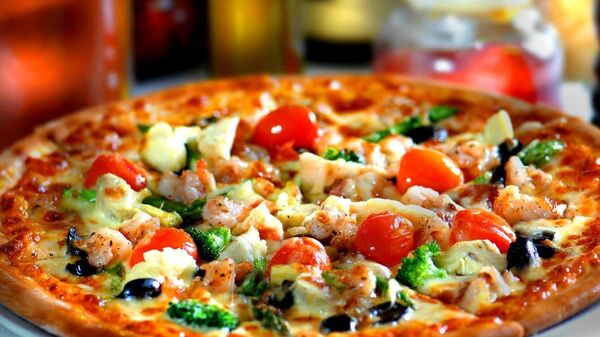The University of Bath in the UK’s Somerset county has found that young men are able to gorge on twice as much pizza as is necessary for them to feel “full” when they push themselves. Researchers with the university’s Center for Nutrition, Exercise and Metabolism compared the effects of “normal eating” - i.e. “eat until you are comfortably full” - with those of “maximal eating” - i.e. “eat until you cannot manage another bite.”
The full paper, titled “Physiological responses to maximal eating in men,” has been published in the British Journal of Nutrition. The study, which included healthy, 22-37-year-old men, showed that for some, maximal eating meant chowing down on multiple pizzas in one sitting. These participants consumed almost twice as much pizza as they normally would.
Although participants doubled their normal caloric intake, remarkably, the amount of nutrients in their bloodstreams stayed within the normal range.
These findings suggest that if an overall healthy person overindulges in food once in a while, their metabolic control does not face any immediate, negative consequences. However, the researchers cautioned that frequent overeating does carry risks.
“We all know the long-term risks of overindulgence with food when it comes to obesity, type II diabetes and cardiovascular disease,” lead researcher Aaron Hengist said in the university’s news release.
“Our findings show that the body actually copes remarkably well when faced with a massive and sudden calorie excess. Healthy humans can eat twice as much as ‘full’ and deal effectively with this huge initial energy surplus.”
Professor James Betts, who oversaw the research, added: “This study reveals that humans are capable of eating twice as much food as is needed to make us feel ‘full’, but that our bodies are well adapted to an excessive delivery of dietary nutrients at one huge meal. Specifically, those tested in this study were able to efficiently use or store the nutrients they ingested during the pizza-eating challenge, such that the levels of sugar and fats in their blood were not much higher than when they ate half as much food.”
Betts added that the study shows that “if an otherwise healthy person overindulges occasionally, for example eating a large buffet meal or Christmas lunch, then there are no immediate negative consequences in terms of losing metabolic control.”
The researchers noted that their study involved healthy, young men, so they plan to further investigate whether women, overweight people and older people respond similarly to occasional overeating.

